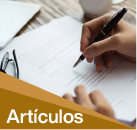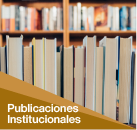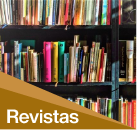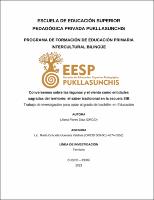Mostrar el registro sencillo del ítem
Conversemos sobre las lagunas y el viento como entidades sagradas del territorio: el saber tradicional en la escuela EIB
| dc.contributor.advisor | Guevara Valdivia, María Graciela | |
| dc.contributor.author | Flores Diaz, Liliana | es_PE |
| dc.date.accessioned | 2025-06-01T17:35:47Z | |
| dc.date.available | 2025-06-01T17:35:47Z | |
| dc.date.issued | 2023-12-07 | |
| dc.identifier.uri | http://repositorio.pukllasunchis.org/xmlui/handle/PUK/82 | |
| dc.description.abstract | Este trabajo tiene la finalidad de reflexionar sobre la identidad y sobre nuestras raíces, pues a pesar de que el lugar en donde se desarrolla la consigna no es un territorio propio, se comparten peculiares rasgos y manifestaciones culturales, así como el idioma, la etnia, formas agrícolas, pero, sobre todo, algunas costumbres, tradiciones, saberes y la cosmovisión que se guarda en cada persona. Este trabajo titulado conversemos sobre las lagunas y el viento como entidades sagradas del territorio busca explorar lo que se ha escrito sobre el territorio y específicamente, sobre las lagunas y el viento ya que son temas que consideramos, nos pueden ayudar a afirmar la autenticidad de los niños y niñas en escuelas EIB. Con este trabajo se pretende que los saberes ancestrales de la comunidad sean difundidos en el ámbito educativo para fomentar la Educación Intercultural Bilingüe (EIB), además de promover identidad territorial, pues los vientos y el agua en específico son elementos muy importantes para la colectividad ya que su forma de convivir con ellos suele ser bastante interesante. De esta forma pretendemos rescatar los conocimientos sobre el agua y el viento para darle aplicación en la escuela como ya se mencionó anteriormente. En efecto tenemos la certeza de que este trabajo será de gran ayuda para que otros docentes manejen una perspectiva más amplia para conocer comprensiones culturales diversas además de poner en valor su importancia para construir una EIB de calidad. | es_PE |
| dc.description.abstract | Abstract This research arose from the interest of reflecting on identity and our roots, because even though the place where the slogan is developed is not our own territory, we share peculiar features and cultural manifestations, such as language, ethnicity, agricultural forms, but above all, some customs, traditions, knowledge and the worldview that is kept in each person. This work is carried out to reflect on the oral tradition through storytelling as a literary genre to affirm identity: let's talk about the lagoons and the wind as sacred entities of the territory. With this work it is intended that the ancestral knowledge of the community be applied in the educational field to promote Intercultural Bilingual Education in addition to promoting territorial identity, since winds and water in particular are very important elements for the community since their way of coexisting with them is usually quite interesting. In this way we intend to rescue the knowledge about water and wind to give it application in the school as mentioned above, in fact we are certain that this research will be of great help for other teachers to handle a broader perspective to know diverse cultural understandings in addition to value its importance to build a quality EIB. Keywords: Intercultural Bilingual Education, ancestral knowledge, territory, school, oral tradition, sacred entities, lagoon and wind, respect, Andean culture. | es_PE |
| dc.description.abstract | Pisiy rimayllapi willasayki Kay k’uskipaypiqa paqarimun identidadmanta, saphinchikmanta yuyaymanay munasqanchikmanta, imaraykuchus maypi consigna wiñachisqa kasqanqa mana kikin territorionchikchu kaptinpas, rasgos peculiarkuna, manifestaciones culturales nisqakunam rakinasqa kachkan, chaynallataqmi simi, etnia, formas agrícolas, ichaqa llapanmanta aswantaqa wakin costumbrekuna, tradicionkuna, yachaykuna hinaspa pacha qawariy sapa runapi waqaychasqa. Kay llamkayqa ruwakun tradición oral nisqapi yuyaymanaypaqmi, willakuywan, género literario hina, identidadta takyachinapaq: rimasun lagunakunamanta, wayramantawan, territoriopa sagrado entidadninkuna hina. Kay hinapin yuyaykuyku qispichiyta yakumanta wayramanta yachaykunata yachaywasipi churanapaq imaynan ñawpaqpi nisqanchis hina, cheqaqpiqa seguron kayku kay investigacionqa anchata yanapanqa huk yachachiqkunapaq aswan hatun qhawariyta kamachinankupaq imaymana hamut’ay culturalkunamanta yachanankupaq además valoranapaq ancha chaniyoq kayninta allin EIB nisqa hatarichinapaq. Chanin rimaykuna: Iskay simipi Educación Intercultural, ñawpaq yachay, territorio, escuela, tradición oral, entidades sagradas, laguna y wayra, respeto, cultura andina. | es_PE |
| dc.format | application/pdf | es_PE |
| dc.language.iso | spa | es_PE |
| dc.publisher | Asociación Pukllasunchis | es_PE |
| dc.rights | info:eu-repo/semantics/openAccess | es_PE |
| dc.rights.uri | https://creativecommons.org/licenses/by-nc-sa/4.0/ | es_PE |
| dc.subject | Educación Intercultural Bilingüe | es_PE |
| dc.subject | Saberes Ancestrales | es_PE |
| dc.subject | territorio y escuela | es_PE |
| dc.title | Conversemos sobre las lagunas y el viento como entidades sagradas del territorio: el saber tradicional en la escuela EIB | es_PE |
| dc.type | info:eu-repo/semantics/bachelorThesis | es_PE |
| dc.type.version | info:eu-repo/semantics/publishedVersion | es_PE |
| dc.publisher.country | PE | es_PE |
| dc.subject.ocde | https://purl.org/pe-repo/ocde/ford#5.03.01 | es_PE |
| renati.advisor.orcid | https://orcid.org/0009-0001-4674-0552 | es_PE |
| renati.type | https://purl.org/pe-repo/renati/type#trabajoDeInvestigacion | es_PE |
| renati.level | https://purl.org/pe-repo/renati/nivel#bachiller | es_PE |
| renati.discipline | 112096 | es_PE |
| renati.juror | Eguiluz Duffy, Cecilia María | es_PE |
| renati.juror | Guevara Zambrano, Carlos Andrés | es_PE |
| renati.juror | Santisteban Matto, Ruth Dina | es_PE |
| renati.juror | Cañari Loaiza, Hilda | es_PE |
| thesis.degree.name | Bachiller en Educación Primaria Intercultural Bilingüe | es_PE |
| thesis.degree.discipline | Educación Primaria Intercultural Bilingüe | es_PE |
| thesis.degree.grantor | Escuela de Educación Superior Pedagógica Privada Pukllasunchis | es_PE |
| renati.author.dni | 73340542 | |
| renati.advisor.dni | 23983513 |







